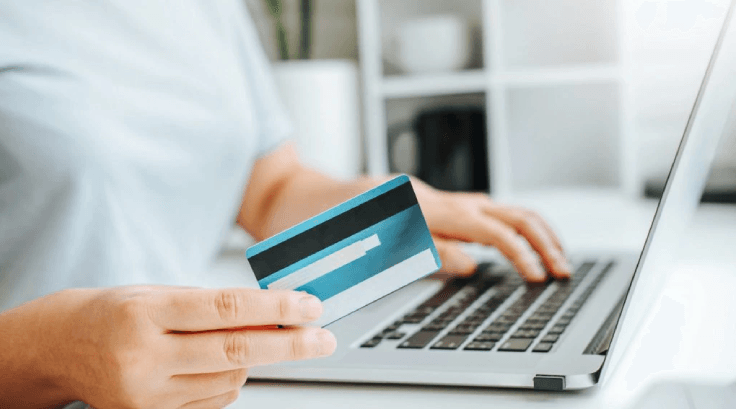
Minimalism is a philosophy of life that seeks to simplify and minimize all aspects of our existence, from our material possessions to our relationships and commitments. In the financial sphere, minimalism can be a very useful tool to achieve financial stability and avoid falling into the trap of unbridled consumerism.
In this article, we will explore the secrets of minimalism applied to your personal finances. You will discover how you can simplify your expenses, save money and live with less, without giving up the quality of life you desire.
What is financial minimalism?
Financial minimalism is an approach that seeks to simplify and reduce expenses and financial commitments in order to live with less and enjoy a freer and fuller life.
This financial lifestyle is based on the idea that happiness does not depend on how much money we have or spend, but rather on how we use our resources to meet our basic needs and achieve our goals.
Financial minimalism involves eliminating unnecessary expenses, reducing debt, saving and investing wisely. Doing so frees up time, energy and resources to focus on what really matters in life.
In addition, financial minimalism can also help reduce money-related stress and anxiety, as you have greater control over your personal finances.
In short, financial minimalism is a way to simplify and free up personal finances in order to live a fuller and more satisfying life.
The benefits of financial minimalism
Financial minimalism can have many benefits for your life and your personal finances. Some of them are:
- Saving money: By reducing your unnecessary expenses, you can save more money and put it towards what really matters.
- Less stress: By having less stuff and less debt, you can reduce financial stress and live with more peace of mind.
- More freedom: By not relying so much on money and material possessions, you can feel freer to make decisions and do what you really want.
- Better relationships: By focusing on the important things in life, such as personal relationships, you can improve your bonds with others.
- More time: By simplifying your financial life, you can have more time to do what you love and enjoy life.
These are just some of the benefits of financial minimalism. If you want to improve your personal finances and live with less stress, this philosophy may be a good option for you.
How to apply minimalism to your personal finances
Minimalism is a lifestyle based on reducing to a minimum what is not essential for living. Applied to personal finances, it involves spending less and saving more to achieve greater financial stability and a simpler, more fulfilling life.
To apply minimalism to your personal finances, you can follow these tips:
- Evaluate your expenses: Make a list of all your monthly expenses and classify them into essential and non-essential.
- Reduce or eliminate non-essential expenses.
- Simplify your lifestyle: Don't get carried away by advertising and fashion. Live with what you need, not what you want.
- Save and invest: Save a portion of your income each month and invest it in safe financial options to obtain returns.
- Eliminate debts: If you have debts, prioritize their elimination. Pay off debts with high interest rates first.
- Learn to say "no": Don't feel obligated to spend money on things that don't interest you or that you don't need. Learn to say "no" without guilt.
Applying minimalism to your personal finances can help you have a calmer and more balanced life, without unnecessary financial worries. Start today and you will see how your quality of life improves significantly.
Simplify your expenses
One of the keys to financial minimalism is to simplify your spending. This means carefully analyzing what you are spending your money on and eliminating everything that is not essential.
To start, make a list of all your monthly expenses, from your rent or mortgage to your cell phone bill. Then go through each one and ask yourself if you really need that expense or if there is a cheaper way to meet that need.
For example, do you really need to own a car or could you use public transportation or a bicycle to get to work? Do you need to pay for cable TV or could you opt for a subscription to a cheaper streaming service?
Also, it's important to set a monthly budget and stick to it. This will help you avoid unnecessary expenses and keep your personal finances under control.
Eliminate unnecessary debt
One of the fundamental principles of minimalism applied to your personal finances is to eliminate everything that does not add value to you. In the case of debts, it is important to analyze which are really necessary and which are not.
On many occasions, we get into debt because of whims or because we want to have things we don't really need. It is important to be aware of this and take measures to eliminate these unnecessary debts.
A good strategy may be to start by paying the debts with the highest interest rates, since they are the ones that hurt us the most financially. It is also advisable to avoid new debts and learn to live within our means.
By eliminating unnecessary debts, we free our mind and our budget so we can focus on what really matters and enjoy a fuller and more satisfying life.
Save and invest in what really matters
Minimalism is not just about spending less money, but spending it on what really matters. Instead of buying unnecessary things, focus on investing in meaningful experiences and your long-term goals. Save for a trip you've always wanted to take or to buy a home of your own. Invest in your education or career. Remember that money is only a means to your goals and not an end in itself.
Change your mindset about money
To lead a minimalist life in terms of personal finance, it is necessary to change the way we think about money. Instead of seeing it as a means to acquire material things and satisfy our immediate desires, we need to start seeing it as a tool to achieve our long-term goals and objectives.
This involves learning to live with less, reducing unnecessary expenses and setting clear priorities for our needs and wants. It also involves being aware of our consumption habits and avoiding falling into the trap of excessive consumerism.
In short, changing our mindset about money will allow us to live a simpler life, free of financial stress and focused on what really matters.
Examples of financial minimalism in real life
Financial minimalism aims to reduce money-related stress and anxiety by simplifying our personal finances. Here are some examples of how to apply financial minimalism in real life:
- Paying off debt: Prioritize paying off your debts to free yourself from financial burdens and reduce the number of bills you have to manage.
- Budget: Create a monthly budget to control your expenses and make sure you are living within your means.
- Automatic Savings: Set up an automatic transfer from your checking account to your savings account to save a set amount each month without having to think about it.
- Conscious shopping: Buy only what you need and avoid impulse or unnecessary purchases.
Sell what you don't use: Sell items you no longer use to earn extra money and free up space in your home.
These are just a few examples of how to apply financial minimalism in your daily life. Remember that everyone has their own unique financial situation, so it's important to find the strategies that work best for you.






